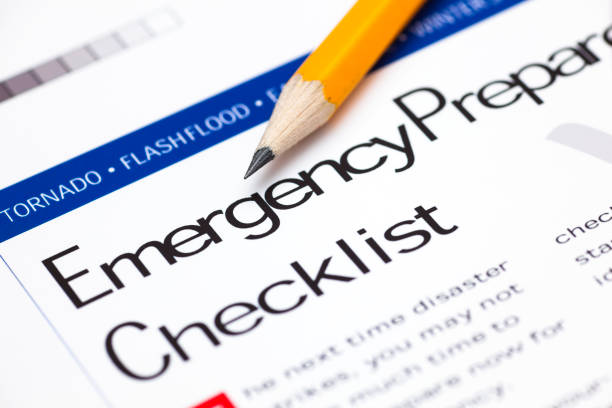
Natural disasters and emergencies occur regularly across the United States, sometimes without advance warnings.When these events happen, lives can be dramatically upended and even put at risk because of a lack of preparedness with senior populations being among the most vulnerable.If you are an older adult or caring for one, it is essential to know how to prepare and safely respond to these types of life altering events.The types and severity of natural disasters and emergencies can vary considerably.
Natural weather-related events include hurricanes, tornados, wildfires, floods, blizzards, and ice storms.Human caused disasters also occur such as industrial accidents, train derailments, fires, and power outages.Regardless of the origin of these disasters and emergencies, being proactively prepared to address the challenges that arise can protect your property and your life.The best first step for disaster preparedness is to create a personalized emergency response plan that includes the following:Objectively evaluate your physical and medical needs.
If you have mobility issues that could impede evacuation, make sure that any assistive equipment you require is in good condition and easily transportable.Make sure you have at least one weeks supply of medications on hand because refilling prescriptions could be difficult or impossible in emergencies.If power is required for your assistive devices to operate or for medications to stay chilled, plan for that contingency with battery back-ups or generators.
If you have a stand alone or portable generator, have enough fuel on hand to operate it for at least one week.Assess transportation requirements.Whether you drive yourself or rely on others for transportation, having ready access to reliable transportation is essential during disasters and emergencies.If you drive, have your vehicle service regularly, fully gassed up, and keep your vehicle keys where you can find them easily.
If you reply upon others for transport, have their phone numbers and contact information handy so they can be contacted at a moments notice.Compile in advance a list of your local emergency contacts, resources, and providers.Create a list of your helpers and their contact information and keep it in a place you can access quickly.Call your helpers first and if they do not answer, text message them the urgency of your situation.
Have your phone preprogrammed with their information so you can contact them quicker and make sure that your phone is as fully charged as possible.People often change their contact information, so check occasionally to make sure your list of emergency contacts is accurate and up to date.Every community has some type of disaster plan in place and facilities designated for different types of assistance to the public.
Know in advance what services are provided at each facility because some emergency centers may not be able to provide you with the resources you need.If you are uncertain what resources or assistance is available, call and your local officials will be glad to inform you and answer any questions.Have a medical ID bracelet.If you are dealing with a chronic health condition, a medical ID bracelet can alert emergency personnel of critical information they need to provide you with the specialized care you could require.Stockpile basic disaster supplies.
Everyone and especially older adults should keep a supply of emergency related supplies in their homes.Essential items should include a flashlight, batteries, canned or dried foods, bottled water, climate appropriate clothing, personal hygiene products, a first aid kit, some cash and disposable cups, plates, and eating utensils.No less than a 3-day supply should be kept and preferably enough to last for a week.Have a to-go bag ready for emergency evacuations.
Disasters such as a natural gas explosion, a weather event, or train derailment that spills toxic chemicals can require an immediate evacuation of people in the afflicted areas.Have a small bag or backpack ready that you can quickly fill with any important supplies, medications, papers and clothing you may need until the emergency is over.Many people put their well-being at risk when disasters happen because they fail to acknowledge the warnings given and the potential for the harm that could result.Older adults are particularly resistant to leaving their homes when serious events occur because they wrongly think it cant happen to me or I made it through this before so I will be fine this time around.
This type of flawed thinking not only puts these seniors in jeopardy, but it also creates an avoidable risk to the lives of emergency services personnel who may be called to rescue people who failed to heed the warnings.When in doubt what to do should an emergency occur, the best advice is always better safe than sorry.Disasters happen.Some are predictable and some come with no warning.
Being prepared in advance for any potential emergency event is the best way to safeguard yourself and your loved ones.
Publisher: Senior Caregivers ( Read More )

